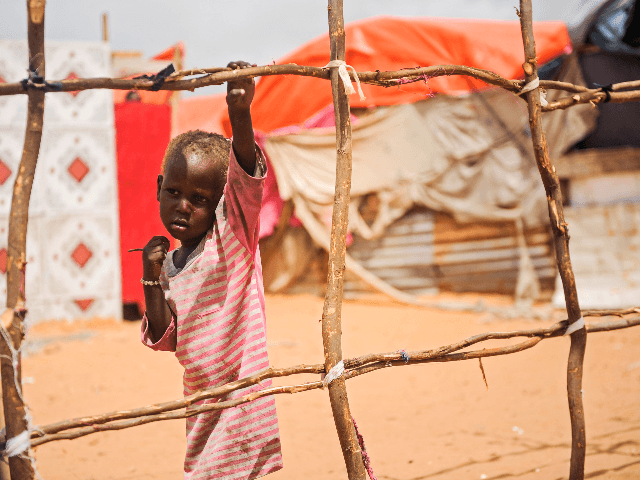The number of children killed or maimed last year in 20 nations at war or in a state of conflict “reached record levels” at more than 12,000, an annual United Nations report revealed this week.
On Tuesday, a press release announcing the publication of the U.N.’s report on children and armed conflict highlighted the unprecedented levels of violence against boys and girls in 2018, noting:
The year 2018 was marked by the highest levels of children killed or maimed in armed conflict since the United Nations started monitoring and reporting this grave violation [in 2005], shows the latest Annual Report of the Secretary-General on Children and Armed Conflict released today.
Overall, more than 24,000 violations were verified in 2018 in the 20 conflict situations on the Children and Armed Conflict agenda. While the number for other violations decreased or remained relatively steady, more than 12,000 children were killed or maimed, mostly by cross-fire incidents, ERW [explosive remnants of war], IEDs [improvised explosive devices], landmines and active combat actions by non-state actors, state actors, and multinational forces.
The “grave violations” against children include killing, maiming, sexual abuse, kidnappings, recruitment, and attacks on schools and hospitals.
According to the U.N., the violations occurred in conflicts across all corners of the world, namely: Afghanistan, Central African Republic, Colombia, Democratic Republic of the Congo, Iraq, “Israel and State of Palestine,” Lebanon, Libya, Mali, Myanmar, Somalia, South Sudan, Sudan, Syria, Yemen, India, Nigeria, Pakistan, Philippines, and Thailand.
U.N. Secretary-General Antonio Guterres said he was “appalled” by the number of children killed and wounded last year, Voice of America (VOA) reported Tuesday.
Virginia Gamba, the U.N. special representative for the office of children in armed conflict that authors the annual report, added in Tuesday’s press release:
It is immensely sad that children continue to be disproportionately affected by armed conflict, and it is horrific to see them killed and maimed as a result of hostilities. It is imperative that all parties to conflicts prioritize the protection of children. This cannot wait: parties to conflict must take their responsibility to protect children and put in place tangible measures to end and prevent these violations.
Somalia was reportedly the worst offender for all violations last year.
“Without a doubt, the one situation that really comes to my mind is the worst one — the one we have to do our utmost to reverse — is Somalia,” Gamba told reporters.
VOA pointed out:
[Gamba] told reporters that the number of violations across all categories there is very high, providing a worrying picture. She said there is also a lack of engagement with the United Nations to improve protections for children, and she said she hopes to visit Somalia in the next two months to see if there is any possibility to open a dialogue.
U.N. investigators identified the Somali National Army as well as terrorist groups such as the al-Qaeda affiliate al-Shabab and its Sufi rival Ahlu-Sunna Wal-Jama’a (ASWJ) as perpetrators.
The report also revealed that Afghanistan was home to the highest number of children deaths and injuries last year, noting that the Afghan Taliban is the chief perpetrator.
Currently, the U.S. is engaged in peace negotiations to end the nearly 18-year-old war in Afghanistan, America’s longest foreign military engagement. The Taliban has intensified attacks, deliberately targeting civilians, amid the talks.
“In Afghanistan, the number of child casualties remained the highest such number in the present report (3,062), and children accounted for 28 percent of all civilian casualties,” the report found, later adding:
Armed groups were responsible for 44 percent of child casualties (1,343), including the Taliban (997), [Islamic State] ISIL-KP (217), unidentified armed groups (114), self-proclaimed ISIL-KP (7) and jointly to different armed groups (8).
U.N. investigators also blamed children casualties on the U.S.-backed Afghan security forces, noting:
The United Nations attributed 34 percent of child casualties (1,051) to government and pro-government forces, including the Afghan National Defense and Security Forces (629) – mainly the Afghan National Army (467) – international forces (286), pro-government militias (56), joint operations of government and pro-government forces (58) and undetermined government and pro-government forces (22).
U.N. officials attributed the rest of the casualties mainly to clashes between pro-government groups and terrorist organizations as well as “cross-border shelling.” There have been military tensions between Pakistan and Afghanistan in recent years.
This week, a separate U.N. report found that overall civilian fatalities at the hands of Afghan forces and their international supporters exceeded those by the Taliban and other terrorist groups last year. However, when taking into account injuries, terrorist groups were the top perpetrators of all casualties in 2018.
The U.N. identified both the Afghan National Police (ANP) and terrorist groups, including the Hizb-i Islami of Gulbuddin Hekmatyar, the Islamic State (ISIS/ISIL), the Haqqani Network, and its Taliban ally as the perpetrators of violations against children last year.
Gamba also told reporters armed groups are increasingly targeting schools and hospitals, particularly in Yemen, Syria, Afghanistan, and South Sudan.
“Here you can actually see the tactics of war, and we are seeing more and more armed groups on purpose destroying schools — and particularly those that engage in girls’ education,” she said. “If you are destroying schools, you are destroying choices.”
“It seems to me that there is every intention of armed groups to destroy the possibility of giving an alternative to children outside of war usage,” she added.

COMMENTS
Please let us know if you're having issues with commenting.